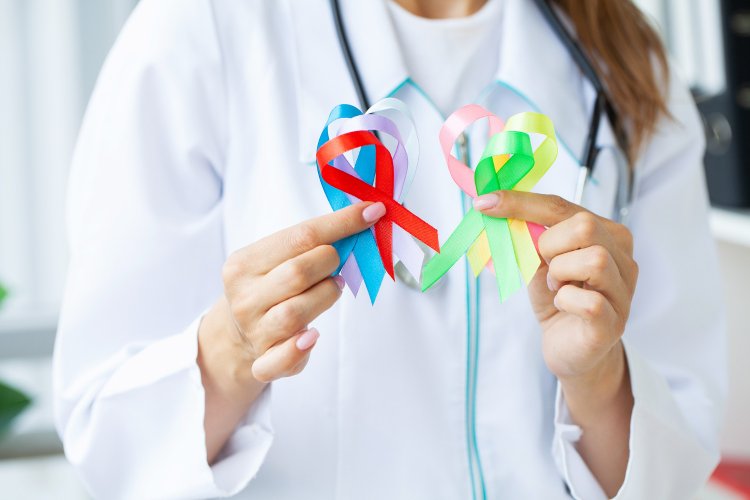Guardians of Health: How to Safeguard Against Cancer in Everyday Life
Cancer is a complex disease influenced by various factors, including genetics, lifestyle choices, and environmental exposures. While some risk factors, such as family history and genetic predisposition, are beyond our control, there are several proactive steps individuals can take to reduce their risk of developing cancer. In this comprehensive guide, we'll explore various strategies for cancer prevention in detail.

1. Healthy Eating Habits:
- Consuming a well-balanced diet rich in fruits, vegetables, whole grains, and lean proteins provides essential nutrients and antioxidants that help protect against cancer.
- Limiting the intake of processed foods, sugary beverages, and red meats can decrease the risk of developing certain types of cancer, including colorectal and stomach cancer.
- Opting for healthier cooking methods such as steaming, baking, or grilling over frying minimizes exposure to carcinogens formed during high-heat cooking.
2. Regular Physical Activity:
- Engaging in regular physical activity not only helps maintain a healthy weight but also reduces the risk of developing several types of cancer, including breast, colon, and prostate cancer.
- Aim for at least 150 minutes of moderate-intensity aerobic exercise or 75 minutes of vigorous-intensity exercise per week to reap the cancer-preventive benefits of physical activity.
- Incorporating strength training exercises into your routine can further enhance overall health and reduce cancer risk.
3. Tobacco and Alcohol Control:
- Tobacco use is one of the leading causes of preventable cancer deaths worldwide. Quitting smoking or never starting significantly reduces the risk of developing lung, throat, and other smoking-related cancers.
- Limiting alcohol consumption lowers the risk of several cancers, including breast, liver, and esophageal cancer. For optimal health, adhere to recommended alcohol intake guidelines and consider abstaining from alcohol altogether.
4. Sun Protection:
- Prolonged exposure to ultraviolet (UV) radiation from the sun increases the risk of skin cancer, including melanoma, the deadliest form of skin cancer.
- Protect your skin by wearing sunscreen with a high sun protection factor (SPF), seeking shade during peak sun hours, and wearing protective clothing, including wide-brimmed hats and sunglasses.
- Avoid indoor tanning beds and booths, as they emit harmful UV radiation that can contribute to skin cancer development.
5. Vaccinations:
- Certain viruses, such as human papillomavirus (HPV) and hepatitis B virus (HBV), are linked to an increased risk of specific cancers. Vaccination against these viruses can significantly reduce cancer incidence.
- HPV vaccination is particularly important for preventing cervical, anal, and oropharyngeal cancers, while HBV vaccination helps prevent liver cancer.
6. Screening Tests:
- Regular cancer screening tests can detect cancer at an early stage when treatment is most effective. Screening recommendations vary depending on age, sex, and individual risk factors.
- Common screening tests include mammography for breast cancer, colonoscopy for colorectal cancer, Pap smear for cervical cancer, and PSA (prostate-specific antigen) test for prostate cancer.
7. Environmental and Occupational Precautions:
- Minimize exposure to environmental pollutants, occupational carcinogens, and other cancer-causing agents in the workplace and home environment.
- Use protective gear and follow safety protocols when working with hazardous materials to reduce the risk of occupational cancer.
8. Stress Management and Mental Well-being:
- Chronic stress and negative emotions can weaken the immune system and contribute to inflammation, potentially increasing cancer risk.
- Incorporate stress-reduction techniques such as mindfulness meditation, yoga, or deep breathing exercises into your daily routine.
- Cultivate strong social connections and seek emotional support from friends, family, or support groups to promote mental well-being and resilience.
9. Genetic Counseling and Testing:
- Individuals with a family history of cancer or known genetic mutations associated with increased cancer risk may benefit from genetic counseling and testing.
- Genetic testing can help identify hereditary cancer syndromes, allowing for personalized risk assessment and tailored preventive measures, such as enhanced screening or risk-reducing surgeries.
In conclusion, while there is no foolproof way to prevent cancer, adopting a healthy lifestyle, avoiding known risk factors, and undergoing regular screenings can significantly reduce the likelihood of developing cancer. It's essential to consult with healthcare professionals to assess your individual risk factors and develop a personalized cancer prevention plan that suits your unique needs and circumstances. By following these evidence-based recommendations, you can empower yourself to take proactive steps towards reducing your cancer risk and promoting overall health and well-being.
#CancerPrevention #HealthyLifestyle #RiskFactors #Screenings #Vaccinations #ExerciseBenefits #NutritionTips #StressManagement #GuardiansOfHealth
What's Your Reaction?





















